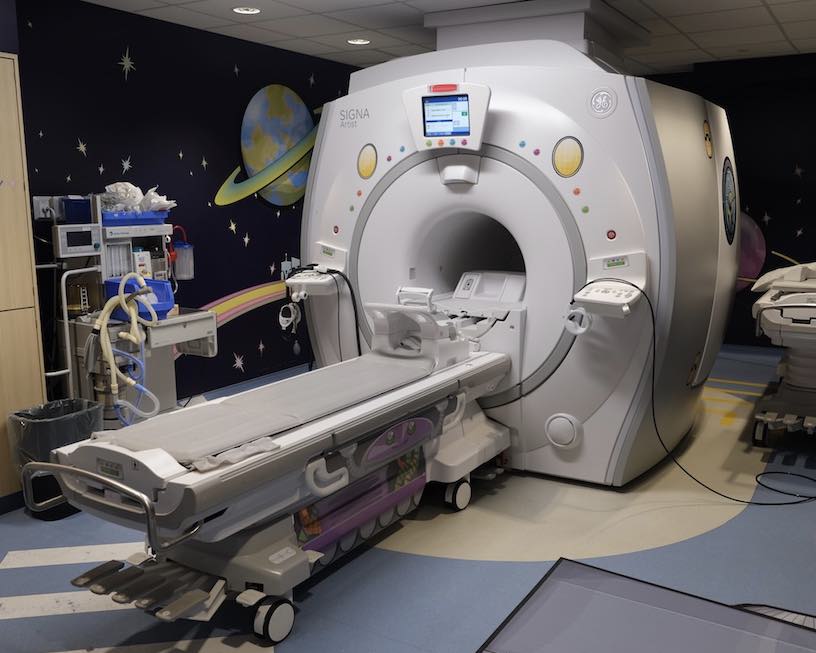Reading Development
The NeuroCognitive Imaging Lab at Dalhousie University is looking for English speaking children in grades 2 and 3 to participate in a research study about reading and the brain. This study is funded by the Social Sciences and Humanities Research Council of Canada (SSHRC).
What Is This Study About?
We are doing this study to learn more about how children’s brains change as they learn to read. More specifically, we are interested in individual differences between children. Although all children are taught to read in elementary school, each child progresses at a different speed. Some children learn to read quickly, while others have more challenges. Even when children learn a bit slower, or struggle, the kinds of challenges they face are not always the same. We are interested in understanding these differences better, and how they relate to brain activity.
In our study we are looking at different skills that contribute to reading ability, and using MRI brain scans to understand how differences in these skills relate to differences in brain activity.
Right now, our research is not looking at children with diagnosed reading disorders (like dyslexia), just at kids who are learning to read at more or less the expected level for their grade. In the long run, we hope this research will help us understand what causes delays or disabilities in reading, to better diagnose reading problems earlier in development, and to assist in designing individually tailored programs for reading development.
Who Are We Looking For?
We are currently recruiting participants in grades 2 and 3, who speak English at home and at school. We also require that participants have no problems with their vision or hearing (wearing glasses is OK).

This study involves an MRI scan. To participate, children will need to lie still in the scanner (which is like a big tube) for about one hour. A parent can be in the room during the scan. While most children do well in the MRI, children who have trouble holding still, or are claustrophobic, might not enjoy participating in this study.
What Will Children Do?
This study will be conducted at our lab at Dalhousie University, plus one visit to the IWK. We’ll conduct assessments of children’s reading and related skills using tasks designed to measure changes in reading ability as children mature.
The study involves 4 visits: two within the first month of when you start, and then follow-up visits one and two years after that. The first visit will be to do reading tasks, and the second is for the MRI. The follow-up visits in years 2 and 3 will be similar ot he first visit, just involving reading tasks.
About Functional Magnetic Resonance Imaging (fMRI)
An MRI scan uses a combination of magnetic fields and radio waves to image soft tissues of the body, such as the brain. MRI is very safe. MRI has been used since the 1980s, and millions of MRI scans are done around the world every year, including lots on children. While many of these are for medical reasons, MRI is also commonly used in research studies with children (like this one). There are no known side effects of having an MRI.
In this research study, children will lie in the MRI scanner for one hour or less. During this time, we will take anatomical pictures of the brain (which look like photographs, and children can get a copy of the picture of their brain!). As well, we will take images while children are reading words. These scans will help us understand what areas “light up” when they are reading, and we can relate differences in these scans to differences in how children do on the reading tasks in the lab.
Will the study cost me anything and, if so, how will I be reimbursed?
There will be an honorarium (thank-you payment) for each study visit attended, regardless of whether your child completes the entire session. In appreciation for their participation, your child will receive 30 dollars per study visit. As well, we will pay the parent/guardian of the child 20 dollars to cover any expenses you might have for participating in this study, such as transportation and parking costs. Payments for each session will be paid at the conclusion of each study visit, even if your child chooses to stop participating in that study visit before it is completed.
If you and your child wish, we can provide you with a digital image of your child’s MRI showing a side view through the centre of their brain.
Interested? Want to learn more?
You can learn more about this study by watching this video. If you are interested in joining our study, you can contact us by email ([email protected]) or by phone (902-494-1911), or fill out this survey. We look forward to hearing from you!